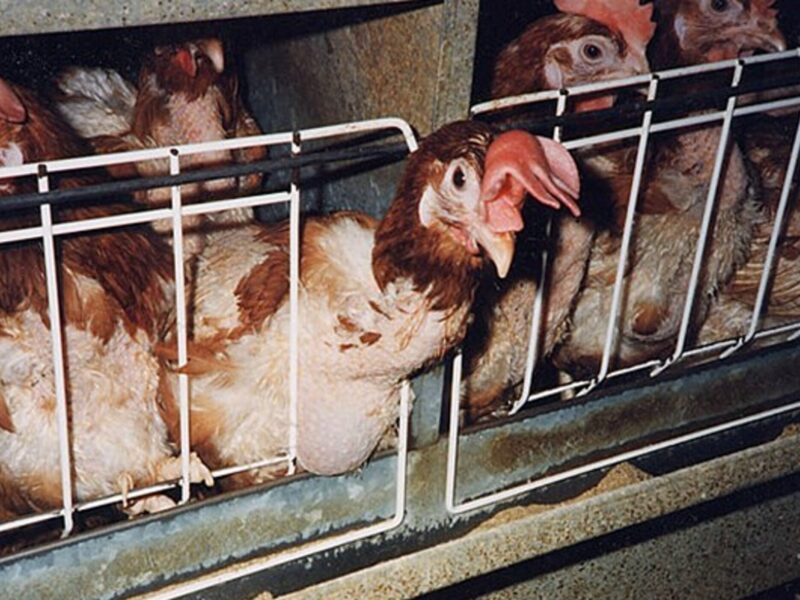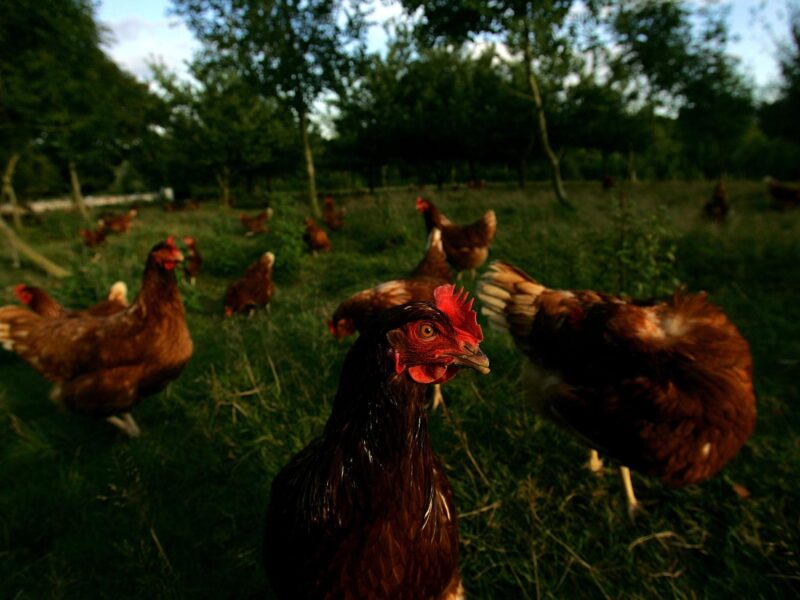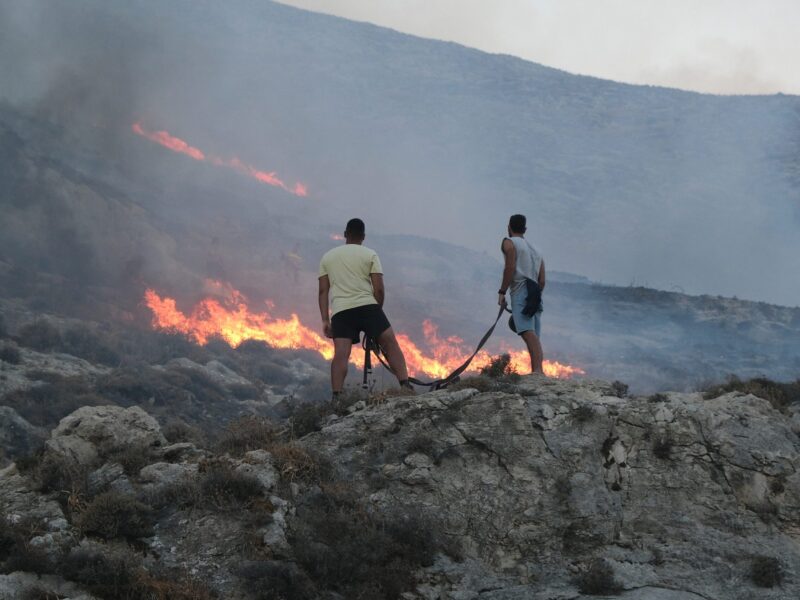
Climate talks guilty of ignoring key problem: factory farmed meat

Indoor intensive sow in crate with piglets | Credit: Martin Usborne / Compassion in World Farming
As world leaders depart Glasgow’s COP26 climate talks, leaving their negotiators to roll up their sleeves and get on, I couldn’t help noticing that they’d missed a huge trick in the battle to tackle global heating: ending factory farming.
As Prime Minister, Boris Johnson said ahead of the conference, the world is at “one minute to midnight”, having run down the clock on waiting to combat climate change.
A damning new UN report suggests that coming into the climate conference, national plans to cut carbon emissions don’t go nearly far enough to avert dangerous climate change.
The Emissions Gap Report by the UN Environment Programme, which provides an overview of the difference between where greenhouse gas emissions are predicted to be in 2030 and where they need to be, puts the world on track for a global temperature rise of 2.7°C by the end of the century. That is well above the goals of the Paris agreement and would lead to catastrophic changes in the Earth’s climate.
A “thundering wake-up call” is how the UN Secretary-General, António Guterres described the report’s findings, reminding the world that humanity’s future depends on keeping the global temperature increase to 1.5° Celsius by 2030.
Overlooked
Part of the reason for that lies in our general failure to recognise one of the biggest contributors to climate change: our food.
As much as 37 per cent of greenhouse gas emissions globally are caused by our food and the way we produce it. The majority of this comes from agriculture, as well as deforestation to make way for new farmland.
The world’s livestock alone produce more greenhouse gases than the direct emissions of the world’s planes, trains and cars combined.
The livestock sector, driven by factory farming, also shows how the natural and manmade worlds are now out of balance. Taken together, the weight of humans and the animals we rear for food account for 96 per cent of all mammals on Earth. Everything else, from elephants to badgers and mice make up just 4 per cent. In the avian world, domestic poultry account for 70 per cent of birds by mass. As David Attenborough puts it, “This is now our planet, run by humankind for humankind. There is little left for the rest of the living world”.
It is a challenge we need to address head-on: in a world producing 80 billion land animals for food a year, most of them factory farmed, resetting the balance will require switching to welfare-positive, nature-friendly production with fewer animals.
Governments can no longer afford to duck taking on the powerful vested interests that drive expanding factory farms and associated overconsumption of meat and dairy. So-called ‘cheap’ meat from chickens, pigs and cattle confined to cages, crates or feedlots where they are fed grain produced using heavy doses of chemical pesticides and fertilisers comes at a massive cost to the planet. And with factory farming as a key reason for driving the climate, biodiversity and health crises we now face, that cost is looking way too much to bear.
There is no time left to cherry-pick solutions.
Time is running out
Action is needed not just on heat pumps, electric cars, low-carbon jet fuel and solar panels, but also on food. The issue of climate-busting food, particularly factory farmed meat and dairy, needs to be firmly on the agenda, in Glasgow and at future climate talks.
Credit where credit’s due: the UK government is planning to restructure the £3.5 billion subsidy package for agriculture to encourage farmers to produce higher-welfare and more environmentally friendly food, with talk of carbon taxes on meat to come.
Yet action so far has been too little too late.
Were global meat and dairy consumption to continue as it is now, emissions from food alone will make Paris Agreement emissions targets very difficult to reach.
If ever there was a ready-made solution to tackling climate change it would be ending factory farming and the associated overconsumption of meat.
Note: A version of this article was first published in mail+ on Friday 5th November, 2021





